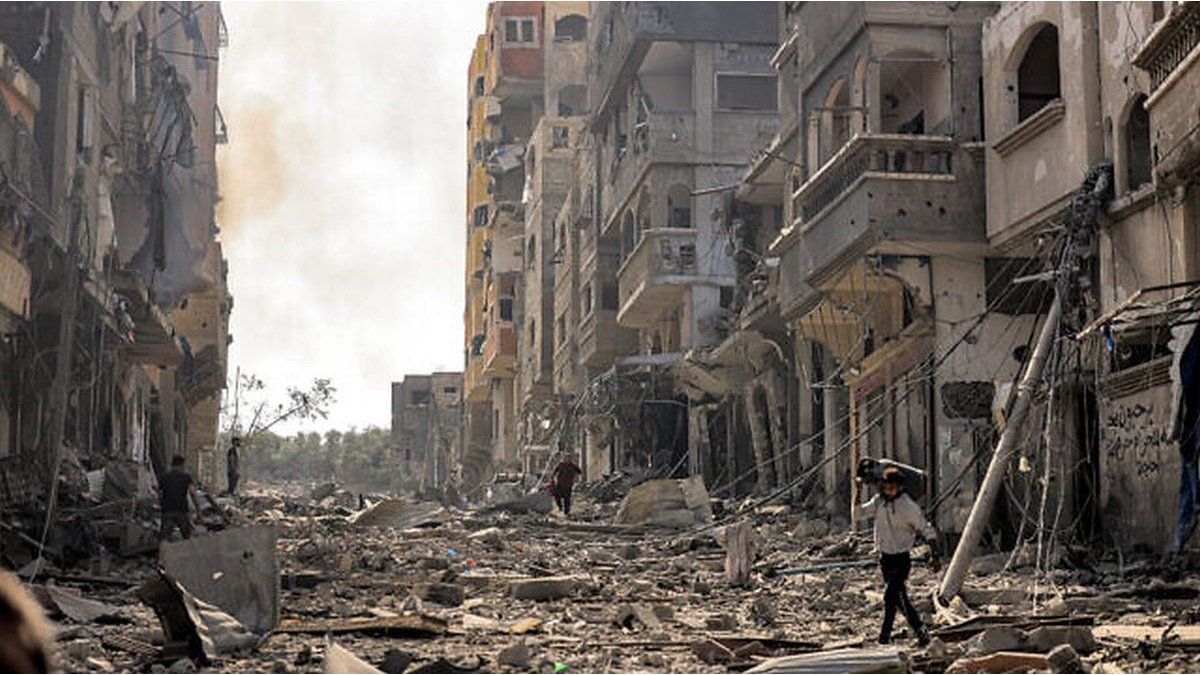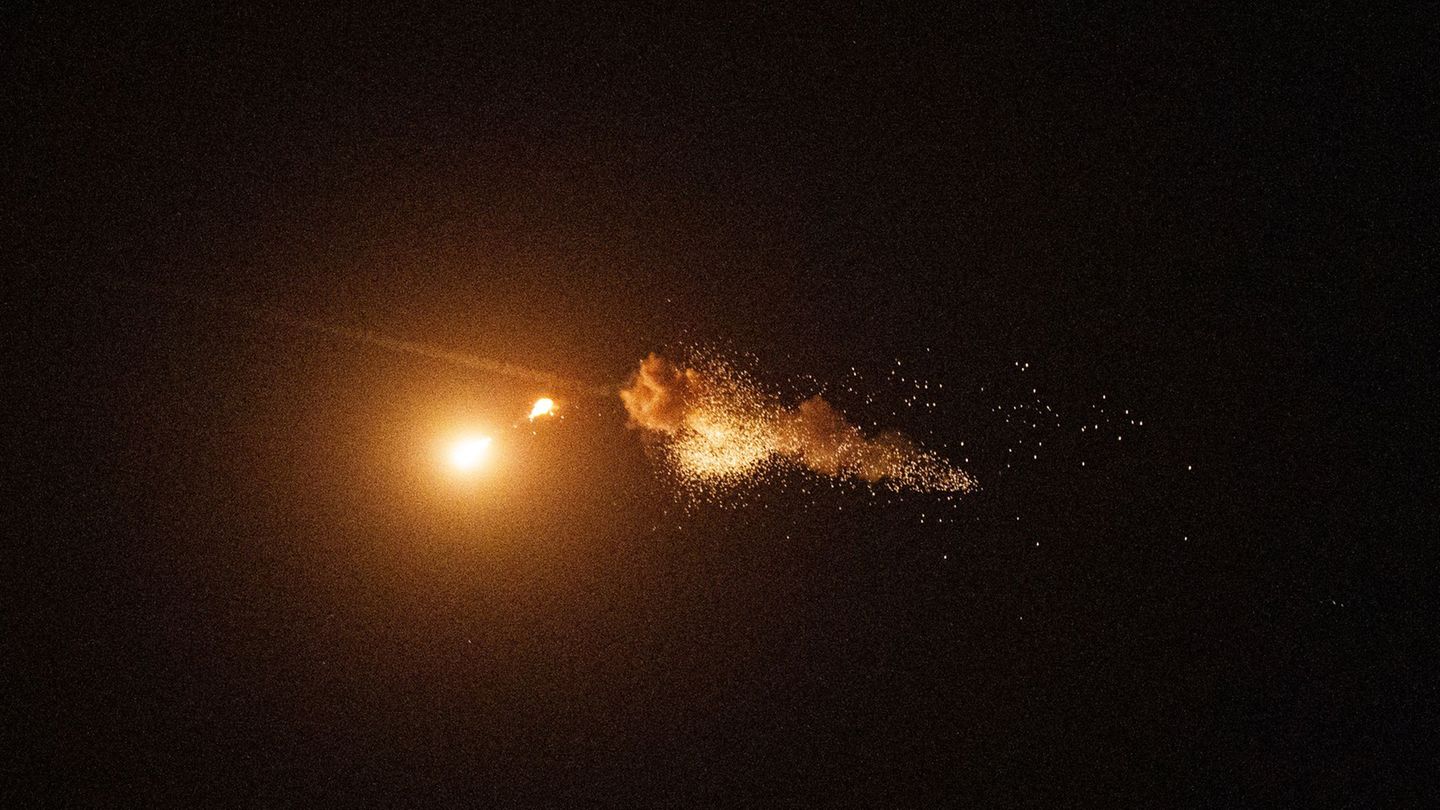The war between Israel and Hamas caused almost 30,000 dead in the Gaza Stripconstantly bombed by the Israeli army and threatened with famine, despite the mediators’ hopes of achieving a truce soon.
This Wednesday morning, Israeli bombings targeted Zeitun againin the north of the enclave, also the scene of street fighting, and against Khan Yunis and Rafah, in the south, according to an AFP journalist in the Strip.
The beginning of the war between Israel and Hamas
The war broke out on October 7when Hamas militants attacked southern Israel and killed about 1,160 people, mostly civilians, according to a report by the AFP based on Israeli data. Also sThey kidnapped about 250 people. Of them, 130 are still held in the enclave, including 31 who are believed to be dead, according to Israeli authorities. In November, a week-long truce allowed more than 100 hostages to be exchanged for some 240 Palestinians detained in Israel.
israel war hamas.jpg
The war began on October 7 of last year.
Pixabay
In responseIsrael launched an air and ground offensive on Gaza that has already killed 29,954 peopleespecially women, adolescents and minors, according to the Ministry of Health of the territory, governed by Hamas since 2007.
The last hours of the war between Israel and Hamas
According to him Gaza Ministry of Health, 76 people died in the last 24 hours. The army, for its part, announced the death of two soldiers, bringing the number of Israeli soldiers killed to 242 since the start of the ground offensive in Gaza on October 27.
traAlmost five months of war, the United States and Qatar, mediators in the conflict along with Egyptthey hope to achieve a truce before Ramadan begins, on March 10 or 11, which will allow part of the 130 hostages to be released.
The title given to Hamas by the United States, Israel and the European Union
According to a source close to Hamas, listed as “terrorist” organization by the United States, Israel and the European Union, the ceasefire would last six weeks and one hostage would be exchanged every day for ten Palestinians detained by Israel. In addition, the Islamist movement wants to increase humanitarian aid to Gaza.
On Tuesday, andThe emir of Qatar, Tamim bin Hamad al Thani, visiting Paris, and the French president, Emmanuel Macron, reiterated their willingness to reach “a ceasefire very quickly.” Palestinian Foreign Minister Riyad al-Maliki on Wednesday defended a “technocratic” government without the participation of Hamas to “stop this senseless war.”
“Now is not the time for a national coalition government,” he said in Geneva. An executive with Hamas “(…) will be boycotted by several countries, as happened before,” the minister insisted, whose government, which governs parts of the West Bank, announced its resignation on Monday.
““My hope is that we have a ceasefire by next Monday.”US President Joe Biden declared on Monday.
Israel’s offensive
Despite theFollowing multiple international warnings, the Israeli leader reiterated his determination to continue his offensive, promising to launch an operation against Rafah, a town in the south of the Strip where one and a half million Palestinians survive, many arriving from other parts of the enclave to take refuge from the fighting, according to the UN.
According to Netanyahu, Rafah constitutes the “last bastion” of Hamas and an eventual truce would only “delay” the offensive that he is determined to carry out. A small protest was organized on Wednesday in that town, in a sign of the inhabitants’ growing desperation.
He Hamas government should “interfere” so that ordinary Palestinians have basic suppliesbut “they don’t care,” criticized Khamis Shallah, displaced from Gaza City. Warwhich transformed Gaza in a “death zone”, according to the United Nationsis by far the deadliest of the five conflicts that have pitted Israel against Hamas.
UN calculations for Israel and Hamas war
The The UN estimates that 2.2 million people, that is to say, The vast majority of the population is at risk of famine, especially in the north, where no convoy with humanitarian aid has arrived since January 23. In that area, “if nothing changes, famine is imminent,” Carl Skau, deputy executive director of the World Food Program (WFP), warned before the UN Security Council.
More than journalists from British and American television networks called on Israel and Egypt for “free access” for all foreign media outlets in Gaza, where since October 7, “foreign journalists have been denied access, except for rare visits escorted by the Israeli army.”
Source: Ambito




